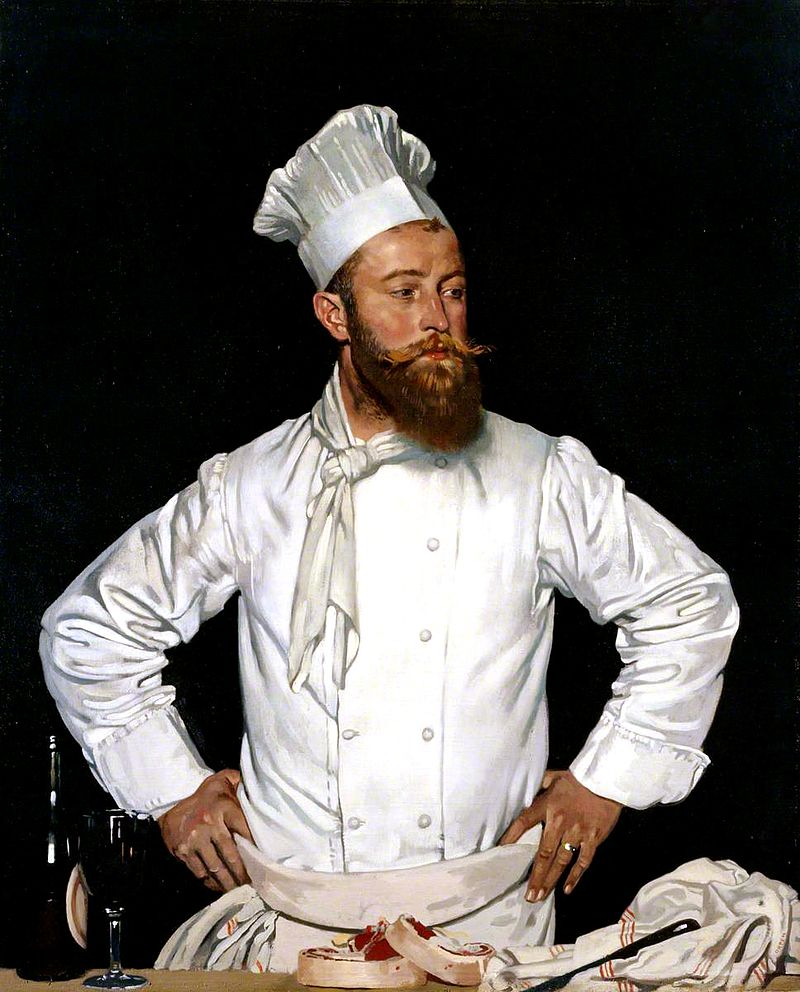Don’t Let It Confuse You! – Chef Posted by Sten on Feb 28, 2019 in Culture, Language
Due to the great interest in the last post in this new series, here is the second one early! In this series, we will look at words or phrases that seem to mean the exact same thing in English, simply because they are spelled the same or sound the same. These are also known as “false cognates”, in German known as Fauxami (a “false friend” in French). But they are not! So don’t let them confuse you! Today, as a second course, we look at the word Chef.
For previous posts in this series, click here.
Expectation: Cooking up wonderful meals
When we think of a chef in English, we may think of an exotischen Geschmack (exotic taste), herrlich duftende Küchen (deliciously smelling kitchens), or perhaps a “bonjour”, Schnurrbart (mustache), a Kochmütze (chef’s hat) and other whites part of the picture.
A German won’t think of this at all. Not by a long shot. As you may have guessed from Kochmütze, German’s call a chef a Koch. But Germans use the word Chef as well – for what you ask? Well…
Reality: Cooking up the new successful business strategy
When you say the word Chef to a German, they will think about the person in the Eckbüro mit der besten Aussicht (corner office with the best view), the person that said Sie sind eingestellt (you are hired) and caused them to throw a party: their boss. Chef really is a general term that normally refers to the person at the top of a work hierarchy. You may have seen articles talking about the VW-Chef (Volkswagen boss) lately. Angela Merkel, still German Bundeskanzler (Federal Chancellor), is also called the Regierungschef (head of government).
Now, instead of Chef, you can also just use the word Boss. Confusingly, we use that as well, though it is less common. A more official term is Leiter, which translates best to “manager”. Perhaps it is easiest to think of the English equivalent “Chief” as in CEO (Chief Executive Officer), for example.
Also: Hey Chef!
Apart from that, Chef, as the Duden confirms, is also a saloppe Anrede [an einen Unbekannten] (casual salute [to a stranger]). An example:
Hey Chef, machst du mir bitte ein Bier? (Hey man, could you please make me a beer?)
Hi Chef! Alles klar bei dir? (Hi man! Everything alright?)
But don’t call your boss Chef like that. Germans are quite the polite people at work. So always go by Herr/Frau Nachname.
How to say it?
Listen to all of this below:
Alright.
Let me confuse you just a little bit, though. If you have seen the Pixar film Ratatouille, you know that even kitchens have a hierarchy. Guess who is at the top of the kitchen? Yes, you guessed right: the Chefkoch (head chef).
Have you confused these before? Does your language have a different use of the word Chef than in English? Do you have similar confusing terms in your language? Do you know more confusing terms you came across learning German? Let me know in the comments below!

Build vocabulary, practice pronunciation, and more with Transparent Language Online. Available anytime, anywhere, on any device.







Comments:
Michael:
Very nice, thanks. For me the earliest significant cognate confusion was bekommen/become. One of the most dangerous to misuse might be “Gift,” since I wouldn’t want someone thinking I’m giving them German “Gift” instead of an English “gift.”
Sten:
@Michael Hi Michael!
Thank you for your comment! Great point, I’ll write about “Gift” too, that’s a very good one!
alcazar:
@Sten “Gift” once had the meaning of “Geschenk” or “Gabe” in german, but some centuries ago.
The only word still used in this context is “Mitgift” 🙂